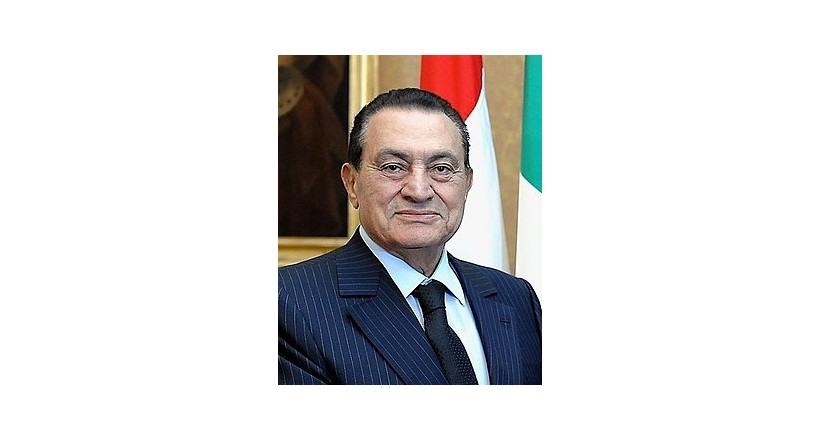Muhammad Hosni Mubarak, better known as Hosni Mubarak (May 4, 1928 - Rajab 1, 1441 AH / February 25, 2020), was born in Kafr al-Masilaha in the Menoufia Governorate. He is the fourth president of the Arab Republic of Egypt from October 14, 1981, succeeding Muhammad Anwar Sadat, until February 11, 2011, when he stepped down under pressure. popularity and hand over power to the Supreme Council of the Armed Forces. He obtained a military education in Egypt, graduating from the Air College in 1950. He rose in military positions until he reached the position of Chief of Staff of the Air Force, then Commander of the Air Force in April 1972 AD, and led the Egyptian Air Force in the Egyptian army during the October 1973 war. In 1975 Muhammad Anwar Sadat chose him as Vice President of the Republic, and after the assassination of Sadat in 1981 - by an armed group led by Khaled Islambouli - he assumed the presidency after a popular referendum, and renewed his term through referendums in the years 1987, 1993, and 1999. Despite criticism of the conditions and mechanisms for running for the 2005 elections, only It is the first direct plurality election, and Mubarak renewed his term for the fourth time by winning it. His reign (until he was forced to step down on February 11, 2011) is the fourth longest reign in the Arab region - among those alive at the time, after Libyan leader Muammar Gaddafi, Sultan Qaboos bin Said, Sultan of Oman and Yemeni President Ali Abdullah Saleh and the longest among kings. And the presidents of Egypt since Muhammad Ali Pasha. In 1989, he succeeded in restoring Egypt’s membership, which had been frozen in the Arab League since the Camp David agreement with Israel, and returning the university’s headquarters to Cairo. He was known for his position in support of the Palestinian-Israeli peace negotiations, in addition to his role in the second Gulf War, so he positioned himself as an ally. Trusted by the West and a counter to extremist Islamic movements in the country. Despite providing stability and reasons for economic growth, his rule was repressive. The state of emergency, which had not been lifted since 1967, muzzled the political opposition, and the security services became known for their brutality and corruption spread. After the outbreak of the January 25 revolution, he was forced to step down from power on February 11, 2011, and later on For the public trial on charges of killing demonstrators in the January 25 revolution. He appeared - as the first former Arab president to be tried in this way - before a civil court on August 3, 2011, and he was sentenced to life imprisonment on Saturday, June 2, 2012. He was released from all cases attributed to him, and the Misdemeanor Court ruled that he be released after the period of pre-trial detention expired on August 21, 2013. He was acquitted on November 29, 2014 of all charges against him before the Cairo Court of Appeal headed by Counselor Mahmoud Kamel Al-Rashidi. However, on May 9, 2015 he and his two sons were convicted in the presidential palaces case, and the Cairo Criminal Court issued a rigorous prison sentence of 3 years.
Welcome to Try Collect




